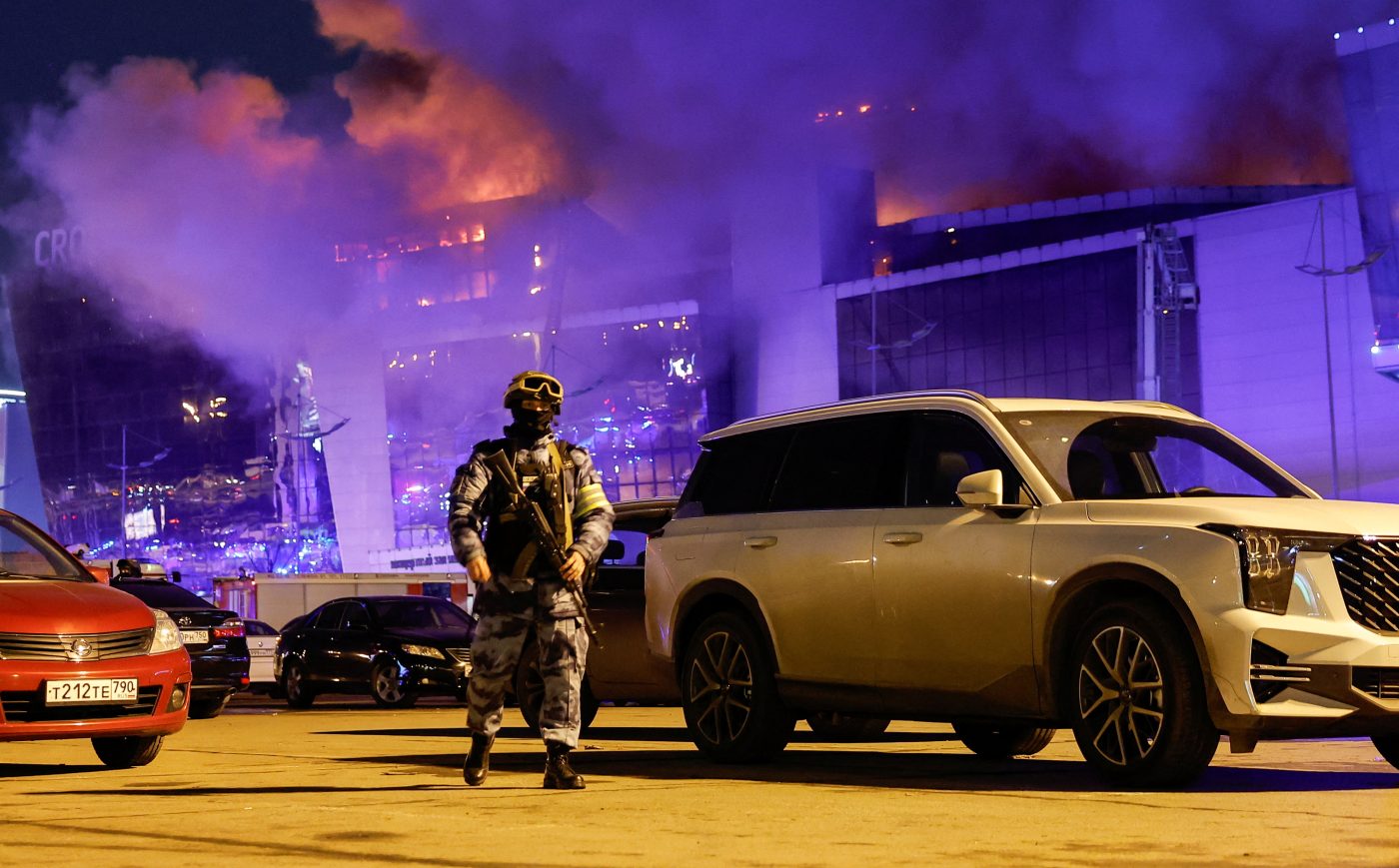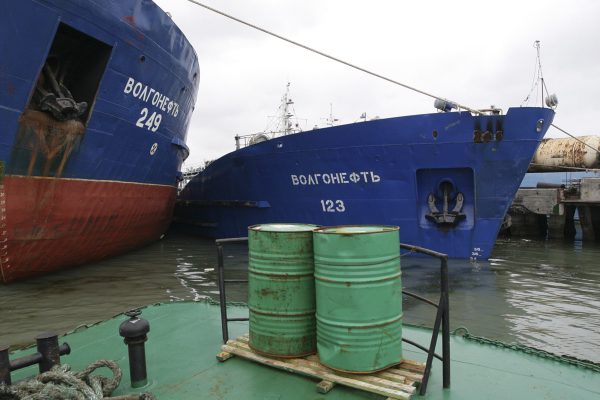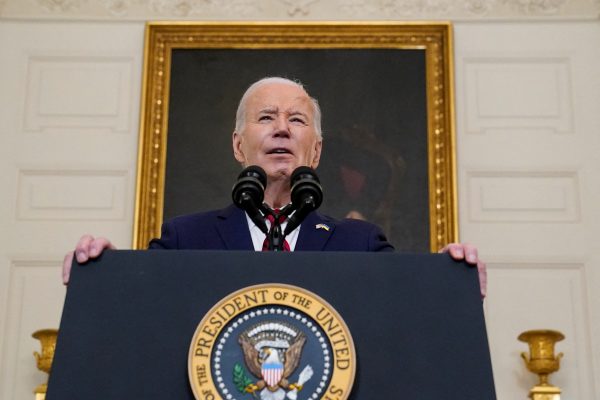Terrorism was the midwife to Vladimir Putin’s regime. As a Moscow correspondent in the fall of 1999, I witnessed the public horror at the carnage wrought in the apartment block bombings in the Russian capital and elsewhere.
The visceral panic those attacks prompted propelled the tough-talking Putin’s popularity from zero to hero in a matter of weeks. It initially drowned out legitimate questions about what had really happened. Many of those who tried to investigate the mysteries around the bombings ended up in jail or dead. But the awkward questions about timing, contradictory and premature public statements, flimsy evidence and motivation remain unanswered. The theory that the Kremlin connived in, or outright contrived, the murder of more than 300 people, though unproven, is now mainstream.
What is not in doubt is that Putin’s popularity is based on his perceived toughness: terrorists must expect ruthless retribution, not concessions. In fact, Russia never talks to terrorists, except when it does. In November 2001, Putin’s envoy Viktor Kazantsev had talks with Akhmed Zakayev, a foreign-based representative of the pro-independence Chechen leader Aslan Maskhadov, at a Moscow airport. The—ultimately fruitless—discussions continued at a government guest house.
But on the whole, Russia’s response to terrorism in the Putin years has been almost performatively brutal, including the gassing of a Moscow theatre full of hostages in October 2022, and the storming with heavy weapons of a school in Beslan in Ingushetia in 2004. Many hundreds died to burnish the Kremlin’s image.
Equally ruthless is the Kremlin’s response to critics, with murderous repression at home and abroad. In other contexts, the use of radioactive polonium (in London in 2006) and the nerve agent novichok (in the British city of Salisbury in 2018) would count as terrorist attacks, as would the bombings of arms dumps at Vrbẽtice in the Czech Republic in 2014. So, too, might the more conventional assassinations of Kremlin critics in Berlin in 2019 and in Spain last month. The onslaught against Ukrainian civilian infrastructure—most recently in Kharkhiv—would also count as a war crime: a kind of terrorism.
In one sense, this works. The message has got across that resisting Putin is bad for your health. If you are caught, you will be tortured and killed (and first, perhaps, be made to eat your severed ear; the fate of one of the suspects of last week’s murderous attacks on the Crocus shopping center in suburban Moscow).
But in another sense, it does not. If even extreme brutality does not cow resistance, the deterrent effect is blunted. Ukraine’s suffering has not encouraged countries like Estonia, Latvia, and Lithuania to seek a rapprochement with the Kremlin. On the contrary, they are boosting their armed forces and building fortifications. They are prepared to fight and die for their freedom, even against overwhelming odds. That stiffens spines elsewhere too.
The same is true inside Russia. The supposedly all-powerful FSB failed to prevent the latest terrorist attack. As my CEPA colleague, Andrei Soldatov, points out in a recent article in the Guardian, pervasive mistrust is corrosive. The securocrats cannot speak truth to power. And a fearful population will not divulge useful information.
These failures dent the FSB’s credibility at all levels. Similarly, the climate of repression does not stop some elements of dissent. Russia cannot match North Korean levels of political, social, and cultural control. Instead, conspiracy theories mushroom. They include the idea that the authorities may enable the terrorist attack to create a pretext for more repression, mobilization, or some other political stunt.
That’s the problem with making ruthlessness your hallmark. It affects your reputation.
Europe’s Edge is CEPA’s online journal covering critical topics on the foreign policy docket across Europe and North America. All opinions are those of the author and do not necessarily represent the position or views of the institutions they represent or the Center for European Policy Analysis.





